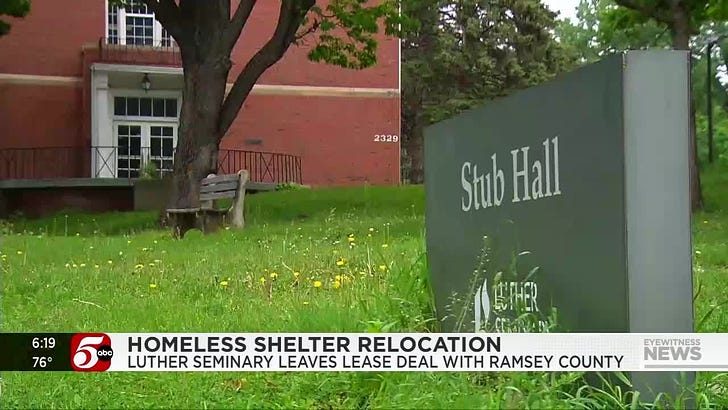
Discover more from Lutheran Confessions
“It is ironic that America, with its history of injustice to the poor, especially the black man and the Indian, prides itself on being a Christian nation.” (James Cone)
Ironies are ironies, after all, which makes them difficult in the explication. But I have long thought at a very basic level a misunderstanding in much of Christianity is the idea that sin is primarily about personal moral failings rather than systemic powers. In which case it’s no wonder any Christians who believe sin to be hyper-individualistic have trouble with recognizing sin that is systemic.
Add to this the widespread recognition on all sides of the issue (I guess this is something conservative and liberal and progressive Christians all agree?) that we are often unaware of our own complicity in sin. Thus Jesus’ teaching about the speck and the log (Matthew 7:3) or Paul’s line in Romans 7:35: “I do not understand my own actions.”
So we either misunderstand what sin is; or we are in denial of sin; or we simply just don’t get it. However you look at it, it becomes particularly ironic when the very same community who believes sin is primarily personal moral failure can also at the same time think a nation could be “Christian.” Ironic then that in the present moment the same people who want us to be a Christian nation are vociferously combatting work like critical race theory that actually attempts to name national sin.
—
Perhaps one of the greatest dangers of progressive Christianity is a tendency toward performative gestures at justice rather than sacrificial commitment to justice itself. Progressives may be, on average, more willing to recognize than liberals the extent to which we remain complicit in sinful systems—but this is a far cry from knowing what to actually do, or acting on what we actually know we should do.
I certainly know this to be true about myself. I’m willing to take risks… to a point. I’m willing to sacrifice… within reason. In other words, my awareness of the extent to which I fall short of my own commitment to justice, and certainly the Christian commitment to social justice, is present, but my will to actually change often falters.
I think perhaps this is what some conservative Christians fail to understand about progressive Christians. When we acknowledge and name our complicity in racism, or economic injustice, etc., it’s not that we hate being white and want all white people to hate themselves. It’s that we believe confessing our complicity to racism is a first step toward healing and justice.
And… we don’t always then immediately model resolutely the repair we see is needed. So partially we cause our own problems.
James Cone, perhaps the greatest North American theologians to emerge out of Arkansas (where I live), adds an additional layer to this topic when he calls out white theologians in his books. In The Cross and the Lynching Tree, for example, he points out that although prominent white theologians in the 20th century had lynching right there in front of them happening constantly, they rarely if ever connected lynching to their cruciform theologies, even though most of them connected the cross to many other forms of abuse and predicated quite a lot of their theology on an analysis of the cross of Christ.
“The conspicuous absence of the lynching tree in American theological discourse and preaching is profoundly revealing, especially since the crucifixion was clearly a first-century lynching.” (The Cross and the Lynching Tree)
Cone argued, at least in part, this was because white theologians’ theology was so inextricably tied into racial injustice that those theologians simply didn’t even know what they didn’t know. Or they did know and intentionally looked away. How could it be otherwise?
“Unfortunately, during the course of 2,000 years of Christian history, this symbol of salvation has been detached from any reference to the ongoing suffering and oppression of human beings—those whom Ignacio Ellacuría, the Salvadoran martyr, called “the crucified peoples of history.” The cross has been transformed into a harmless, non-offensive ornament that Christians wear around their necks. Rather than reminding us of the “cost of discipleship,” it has become a form of “cheap grace,” an easy way to salvation that doesn’t force us to confront the power of Christ’s message and mission. Until we can see the cross and the lynching tree together, until we can identify Christ with a “recrucified” black body hanging from a lynching tree, there can be no genuine understanding of Christian identity in America, and no deliverance from the brutal legacy of slavery and white supremacy.”
—
I appreciate Elizabeth Palmer’s acknowledgment in an article on James Cone in The Christian Century, when she said James Cone’s theology is “easy to like and hard to live.” Indeed. And in a sense this is true of much of the liberation theology that informs our church practice.
As a progressive pastor I’m committed to a critical evaluation of my own theology, my own practice, all in light of liberation theology, because I believe self-scrutiny is essential to the walk of faith. This is what I believe repentance to be, or at least how it starts, and I believe repentance to be at the heart of the Christian life.
And I do not think this is hating myself, or my whiteness, or my maleness. It’s simply being responsible. Recognition of sin is a crucial step in the Christian journey.
So what does this mean for a guidebook to progressive church, written as it is by a straight white male? Well, I’ve thought about that for a long time. It’s probably part of the reason I’m writing it as a blog rather than trying to publish it as a book. I have some reservations about the idea that I might write “the” book on progressive church, but I feel more comfortable writing a month-long daily “guidebook.” It’s perhaps appropriate for my social location in relation to the intersections I’m near and aware of.
I think it’s also important to name how I go about doing this work. Our congregation is itself predominately white. As is our denomination. I’m uncertain how that might change, but one thing I know for sure is that I am uninterested in making our church more diverse if by diverse it means those from other racial or ethnic communities have to travel a long ways to come and meet us at “our” table. Instead, I value the model of allowing each community to be itself and us doing the hard work of moving in the direction of neighboring faith communities and ethnic groups who are open to shared mission and critical conversations for repair.
I made this point in a sermon a few weeks ago. Our Marshallese outreach coordinator had planned a lunch for our congregation, a thank you meal. I was worried (for good reason) that less members of our congregation would attend the lunch than we hoped. So I simply pointed out in the sermon that our coordinator, by preparing the meal and serving it, was traveling a much farther distance (culturally, etc.) in order to meet us where we are than we seemed to be in traveling the direction of the Marshallese community.
Too much of the work of repair was being performed by him and his community. That’s a typical problem in the progressive church dynamic.
Over the years we have been developing practices that I hope are really centered in reparations. These include: 1) we devote a percentage of our budget each year to actual reparations to the African-American community through a reparations fund; 2) we partner with the neighboring Marshallese community and join their voice seeking reparations for our nuclear tests on their atolls, and 3) we have been especially open as a community to providing reparative space for the queer community. 4) I’m working on figuring out how as a congregation we can move past a simple land acknowledgment and toward actual reparative work related to the Osage, Caddo and Quapaw Nations, on whose ancestral land our church building is situated.
We do none of these things perfectly, and I’m not even entirely sure that we ever can. There’s quite a bit of intersectional self-reflection yet to do. Perhaps especially we could open even more conversations with the communities most affected by social injustice and listen as they reflect back to us how we might live more fully into the justice of God; but of course we’d need to do that in ways that don’t simply make those impacted communities do even more free work for us.
In the meantime, it’s especially hard to navigate when the very tools we have been discovering are helpful for such work, tools we share in the public square, are under attack by the very Christian communities who should recognize with us that the starting point for Christian “work” is repentance.
All I know to do is to keep doing my own work, and our congregational work, and try, as difficult as it sometimes is, to listen non-anxiously and grow and change. Real solidarity is not simply using others for the sake of growth, though. Real solidarity will simply mean becoming those with whom we are in solidarity, which of course is the most radical point of Cone’s theology.
Subscribe to Lutheran Confessions
Reflections from a progressive Lutheran pastor in the South.





Food for thought: Scripture tells us, “ What a man sows that will he also reap.” Question: When the children of Israel were slaves in Egypt who were the task masters?